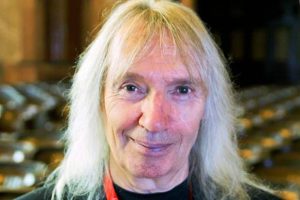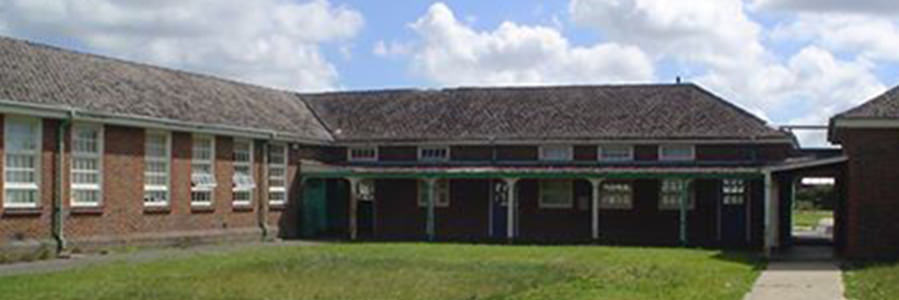Sad early death of one of our most prestigious Old Boys; a mathematician who championed the cause of Alan Turing, the disgraced wartime codebreaker who has since been acclaimed as a hero.
Without the tireless efforts of the mathematician S Barry Cooper, the story of Alan Turing, the brilliant but ill-starred computer pioneer and wartime codebreaker, might never have re-emerged, enabling him to be recognised globally as a British hero.
At the Government Code and Cypher School at Bletchley Park, Turing had led Hut 8, which was engaged in decoding German naval cryptanalysis enciphered using Enigma machines. His cracking of the code enabled the Allies to intercept German communications on the battlefield, at sea and in the air. Winston Churchill is reported to have said that Turing’s achievement in breaking the Enigma Code was the biggest single contribution to the Allied victory in the Second World War.
Long before his top-secret work could be made public, Turing (obituary, June 16, 1954) died in disgrace. He is thought to have committed suicide through cyanide poisoning, two years after he was convicted of gross indecency for homosexual acts.
Barry Cooper’s long-running campaign helped to persuade the British government to issue Turing with a posthumous pardon in 2013.
A long-haired academic who wore a trademark leather jacket, Cooper was professor of pure maths at the University of Leeds. He had long been inspired by Turing’s work after the war at Manchester University’s computing laboratory, which was largely unheralded outside, and even inside, mathematical and computing circles. In 2003, he founded what he termed “a geeky academic network” — Computability in Europe — devoted to Turing’s thought.
Cooper went on to become a leading figure behind the celebrations to mark the centenary of Turing’s birth in 2012. The initiative garnered global recognition for the codebreaker. More than 30 countries — from Iceland to New Zealand — staged Turing symposia and exhibitions: there were film screenings in Oslo, an opera, the Turing Machine, in Palermo, and performances involving poetry in Chicago that explored Turing’s life. Runners followed the routes Turing had run along the River Cam during his days as an undergraduate, while his statue in Manchester’s gay quarter became a much-visited landmark.
Cooper travelled the world giving lectures on the great codebreaker. Back in Leeds, he would often work all night on newsletters. His efforts paid off. In May 2012, the LibDem peer, Lord Sharkey, introduced a private members’ bill to secure Turing a posthumous royal pardon for his 1952 conviction, which succeeded in 2013. Lord Sharkey said: “Barry’s dedication to Turing’s cause was . . . instrumental in securing Turing’s pardon.”
Alan Turing: His Work and Impact (2013), co-edited by Cooper, won the RR Hawkins Award from the American Publishing Association. The Once and Future Turing, co-edited with Andrew Hodges, is scheduled to be published in the spring. The success of the Oscar-winning film, The Imitation Game (2014), starring Benedict Cumberbatch and Keira Knightley, was a crowning moment for Cooper. He could reflect that, in 1968, when he started out as a young researcher working in the same fields as the great computing pioneer, Turing was virtually unknown, even in Manchester, where he worked after the war. Three decades later, an attempt to raise £55,000 for a sculpture of Turing failed to elicit a single donation from British computing companies.
Cooper remained dumbfounded at the lack of acknowledgement for Turing’s groundbreaking 1950 paper, which inspired many of the principles of modern computing, or for his work in helping to devise Manchester Mark 1, one of the earliest prototypes of the modern computer. As a student of Mike Yates, a mathematician who was taught by Turing’s first doctoral student, Robin Gandy, Cooper was considered by many to be “the intellectual great-grandson of Alan Turing” and, as such, an appropriate figure to keep the mathematician’s flame.
Stuart Barry Cooper was born in Woking in 1943. He grew up in Bognor Regis. His father, Richard, was a cabinetmaker, while his mother Edna (née Mason) ran a grocery shop.
While at Chichester High School for Boys, he was selected for the England under-16s rugby team. At the same time, he was gaining a reputation for using his creativity and sense of fun to create mischief. Once, he made himself especially popular with his classmates by setting off the school bell via a battery-powered switch in his desk so that lessons finished earlier.
In 1966, he left Jesus College, Oxford, where he had won a scholarship to read mathematics. By 1969 had found a permanent post at Leeds university, where he became an authority on the structure theory of Turing degrees — an algorithmic formula that measures the limits of computing power and which has done much to forward the development of computer theory.
From 1971 to 1973, he carried out research at the University of California, where he was inspired by social activism. On his return to Leeds, he co-founded the Chile Solidarity Campaign, to help those fleeing the dictatorship of General Augusto Pinochet. Some arrived in Yorkshire with little more than a guitar and a carrier bag. Cooper opened the home he shared with his then partner, Sue Buckle, and their daughters, to a couple from Chile. He found host families for many others. During the miners’ strike in 1984-1985, he was similarly engaged, collecting food parcels for the families of striking miners in the area.
He is survived by his wife, Kate (née Copestake), and their sons, Mark and Evan, who are both at university, and by his former partner, Sue Buckle, and their daughters: Carrie, a journalist and editor based in New York who often tweeted her father’s articles on Turing to an American audience, and Shirin, a teacher.
Friends spoke of Cooper’s “gentle aura”, but he was also a man of prodigious energy and great enthusiasms. He co-founded a group to bring international jazz acts to Leeds. He did much of the fundraising and promotion himself, fashioning posters with Letraset, scissors and cow-gum, trawling Leeds’ streets in the early hours to paste up publicity, and hauling lighting and equipment to the venue at the former Trades club. Within months, Leeds was on the jazz map.
He also competed in marathons with equal gusto and achieved an impressive best time of two hours 48 minutes in Chicago.
Cooper did not let up in his campaigning on behalf of Turing. Earlier this year, he launched a petition urging the British government to ensure that a rare notebook of Turing’s mathematical work from 1942 was saved for the nation. This time he failed. The notebook was sold to a private buyer for £660,000 in April. Notwithstanding this disappointment, he had the satisfaction of knowing that, with the success of The Imitation Game, his work in re-establishing his hero’s reputation was largely complete.
Professor S Barry Cooper, professor of pure mathematics, was born on October 9, 1943. He died of cancer on October 26, 2015, aged 72. From The Times of London November 24, 2015.
The Guardian: Other lives
Barry Cooper
The centenary in 2012 of the birth of the mathematician and Enigma codebreaker Alan Turing might have passed largely unnoticed, but for my colleague Barry Cooper, himself a major figure in mathematical logic, who has died aged 72. As it was, the celebration’s global impact did much to bring Turing the public appreciation he deserves, culminating in a royal pardon in 2013. Turing took his own life after being convicted in 1952 of gross indecency for having gay sex, which was then a criminal offence.
Barry invested his seemingly boundless energy in the Alan Turing Year, 2012. He led a six-month programme, Syntax and Semantics, at the Isaac Newton Research Institute in Cambridge, and, Barry Cooper, and became the celebration’s spokesman on Twitter and in the media, including in the Guardian’s Northerner column. One outcome was Alan Turing: His Work and Impact (2013), edited by Barry and Jan van Leeuwen, a hefty and definitive volume which won the Association of American Publishers’ RR Hawkins award.
Son of Edna (née Mason), who ran a grocery shop, and Richard, a cabinet maker, Barry grew up in Bognor Regis, West Sussex, and went to Chichester High School for Boys. On graduating from Oxford in 1966, Barry studied for a PhD at Leicester, but worked mainly in Manchester with Mike Yates, the only established British researcher in Barry’s chosen field: the structure-theory of the Turing degrees, an exciting emerging field, then largely confined to North America.
Barry was appointed a lecturer at the University of Leeds in 1969, and remained there throughout his career, except for regular sabbaticals and invited visits abroad, becoming professor of pure mathematics in 1996. The years 1971-1973, which he spent in the US at the University of California, Berkeley, were especially formative for his research career, and his left-wing politics found common ground with student activism and the civil rights movement.
His research focus was always computability – the study of the theoretical limits of the power of computers (or Turing machines). Towards the end of the 20th century, this blossomed into a mathematical discipline of astonishing profundity, a programme in which Barry played an international role, publishing numerous papers, a monograph, Computability Theory (2003), and various edited collections.
Enviably successful at securing research funding, he supervised many successful PhD students, several of whom are now well-established mathematicians. He was also founder and president of Computability in Europe, a flourishing association that now has more than 1,000 members.
Barry’s achievements extended beyond mathematics. Having played rugby for England under-16s, he became a keen marathon runner. Another passion was jazz; he co-founded the Leeds Jazz non-profit organisation in 1984 and helped attract top artists including Art Blakey and the Art Ensemble of Chicago. A keen left-winger, Barry was involved in various campaigns, notably the Chile Solidarity Campaign for refugees and the miners’ strike of 1984-1985.
Barry is survived by his wife, Kate, and their sons, Evan and Mark, and by his daughters, Carrie and Shirin, from his previous relationship with Sue Buckle.
Many thanks to Bill Allen for supplying this article

